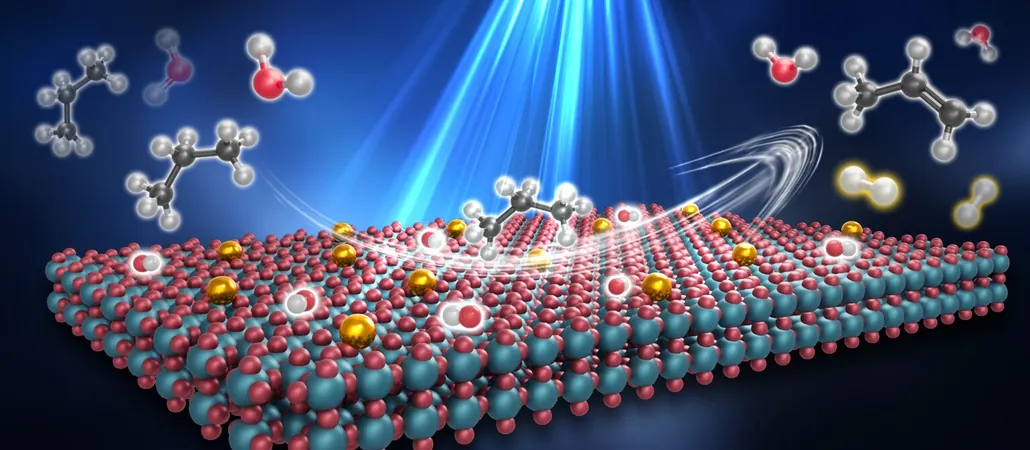
Transforming Propane into Propylene: Scientists Unlock New Energizing Method Using Water and Sunlight!
2025-04-15
Author: Arjun
Breakthrough in Propane Conversion!
Imagine converting propane, a common fuel, into propylene, a vital ingredient for plastics, using just water and sunlight! This dream became reality thanks to groundbreaking research by a team from the Dalian Institute of Chemical Physics and the Shanghai Advanced Research Institute, led by esteemed professors Zhang Tao and Wang Aiqin.
The Challenge of Conventional Methods
Traditionally, the process known as propane dehydrogenation (PDH) has been a hot affair, requiring scorching temperatures above 600°C. Such extreme heat not only spikes energy consumption but also causes wear and tear on catalysts, leading to unwanted carbon build-up. This has posed significant hurdles for chemists aiming to simplify and streamline the PDH process.
Mild Conditions, Major Results!
But fear not! This innovative research reveals a novel water-catalyzed route using a copper single-atom catalyst (SAC). The study shows that with the right conditions, PDH can occur efficiently between just 50 and 80°C—transforming how we think about this energy-intensive process!
How It Works: A Closer Look
What’s the secret? By utilizing a Cu1/TiO2 SAC, researchers demonstrated that the combination of copper atoms, water vapor, and light is pivotal for the conversion from propane to propylene. The process involves generating hydrogen and hydroxyl radicals through photocatalytic water splitting. These radicals then interact with propane, extracting hydrogen to create propylene while water acts as a catalyst—a game-changing mechanism that stands apart from traditional methods.
Versatile and Sustainable
Even more exciting, this process isn’t limited to propane. The research indicates that it can also efficiently convert ethane and butane, broadening the horizons of this chemistry wonder. Better yet, scientists found that sunlight alone can power this reaction, setting the stage for sustainable industrial applications.
A New Era in Catalysis!
Professor Liu Xiaoyan, a leading author of the study, emphasized the importance of their findings, stating, "Our study not only provides a new way for PDH but also establishes a paradigm for conducting high-temperature reactions driven by solar energy." This advancement may not only reshape the future of chemical processing but also mark a giant leap towards greener energy solutions!



 Brasil (PT)
Brasil (PT)
 Canada (EN)
Canada (EN)
 Chile (ES)
Chile (ES)
 Česko (CS)
Česko (CS)
 대한민국 (KO)
대한민국 (KO)
 España (ES)
España (ES)
 France (FR)
France (FR)
 Hong Kong (EN)
Hong Kong (EN)
 Italia (IT)
Italia (IT)
 日本 (JA)
日本 (JA)
 Magyarország (HU)
Magyarország (HU)
 Norge (NO)
Norge (NO)
 Polska (PL)
Polska (PL)
 Schweiz (DE)
Schweiz (DE)
 Singapore (EN)
Singapore (EN)
 Sverige (SV)
Sverige (SV)
 Suomi (FI)
Suomi (FI)
 Türkiye (TR)
Türkiye (TR)
 الإمارات العربية المتحدة (AR)
الإمارات العربية المتحدة (AR)